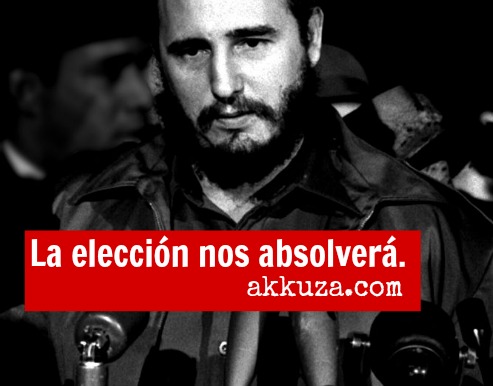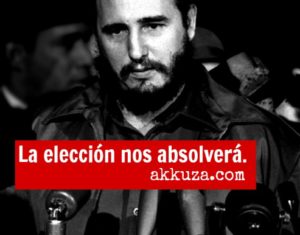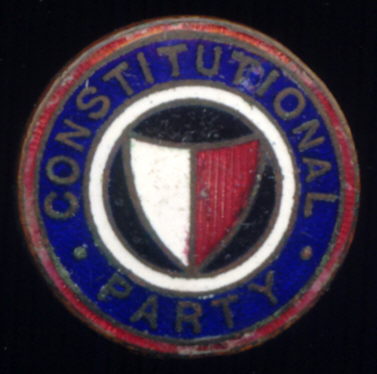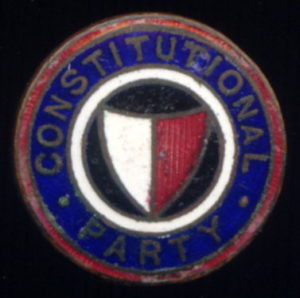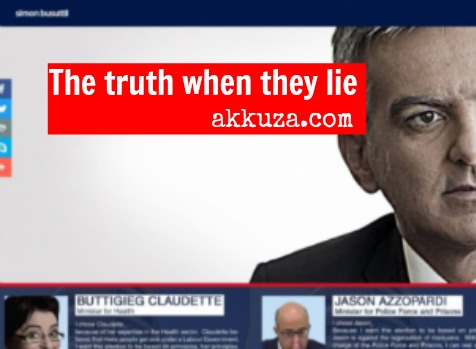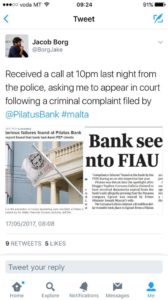For a fleeting moment, during a run up to an election and even after its inevitable aftermath, the nationalist party (and the wider coalition that had been formed) had seemed to be the best option to fight corruption and begin the much needed process of constitutional change. We were conscious that this was a work in progress. The gamble on Simon Busuttil’s PN and Marlene Farrugia’s PD was in many ways dictated by circumstance. Other advocates for change were not convinced even by this coalition. They expected, rightly or wrongly, an even greater change than a party that seemed to be led by a leader who seemed to have had a last minute damascene vision and another leader who seemed (in their opinion) to have turned one time too many. In the fog of “war” that is an electoral campaign we had not time to count these losses – though their opinion and vote was important: they too, after all want the real change.
Winners, they say, write history and the losers of elections are condemned to confused assessments and the interpretation of garbled information. The new parliament got a confused PD partner sending the wrong messages to anybody who had hoped that the coalition would serve its purposes. Marlene Farrugia, having made history as the first representative of a third party to be elected to parliament for a very long time, segued into a rosary of mixed messages that betrayed a lack of identity, a loss of sense of purpose and – to a large extent – showed her up as unable to use the tools of democracy in order to achieve her purpose.
The Nationalist Party meanwhile was in absolute meltdown. The crisis of identity that had been forced upon it by Simon Busuttil’s new switch for change began to unfold. Did the party really want to go in that direction? Was change and the battle against corruption worth this “suffering”? That was the choice being faced by the hardcore nationalist voter. The nostalgia for the PN victories of the past was misread as the need to revert to being the PN of the past – the one that thrives on the partisan structure that has been tattoed into our constitution. They nostalgia is for the banner, the hymn, the religio et patria but not for the most crucial element that had allowed the coalition of ideas that the PN has always been to be successful. What element is that? The ability to be on the right side of history, the ability to decide for the future and for future generations, the ability to be a party with a goal, a party with a soul.
That element was too hard to grasp. Especially after the second successive electoral loss. The PN core wanted an easy way out. It’s easy to see why. The reasoning is in competitive terms – not value oriented. In the days of post-truth politics values count much less than results. These are the days when an election will wipe accountability away with one fell swoop. Caught red-handed with accounts in Panama? Not fit for purpose? We’ll let the people decide, and a landslide victory later means that you are absolved of all crimes and free from any suspicion of corruption. A história me absolverá? Scratch that Fidel, our modern politicians cannot wait for history, it’s more like la elección me absolverá. The obsession with victory for victory’s sake – as they had been groomed to expect over years of partisan evolution meant that they would bay for a hopeful who would bring back those days of relativism, cynical pragmatism and yes, why not, employ some of the winning tactics that until now seem to have been the domain of the Labour party.
Delia is a godsend to the PN core. He takes offence when he is told that he risks making the PN look like a Labour clone. He misunderstands the why and how of that accusation. It is not because he has any secret plan of conniving and confabulating with Muscat and the Panama crowd. It is because the so called New Way is a choice to revert to the ever so familiar PLPN style of politics that has gotten us into the mess where we are. It is because his election is a clear message that the PN has abdicated from the real cause for change that is needed. Of course there is no harm in that for the PN core. They never stood for national aspirations. They stand for the preservation of the party. For its supposed rise from the ashes and return to running the country in that damned alternation with the other side of the partisan farce.
Where does that leave us? After yesterday’s step backwards we revert to being the minority of minorities, the unrepresented few who strive against all odds to force a mental shift upon a nation. Today we have less faith in the ability of fellow citizens to make choices weighed upon a better future. Today, a solution to the problem and to the need for change seems further than ever. We cannot be part of this PN. Not without a clear commitment to the change – constitutional and moral – that is needed.
Right now the only solution seems to be some future crisis that forces change as an inevitable option. It is sad to have come to this point but in many ways, and if we are to respect the democratic nature of our system, it is the only way in which the partisan elements upon which the real establishment feeds will open their eyes and notice the dangerous tightrope walk they have chosen to engage with.
This blog returns to the place it has always been: a voice for the unrepresented few who still yearn for change and reform.
The truth, if I lie.
